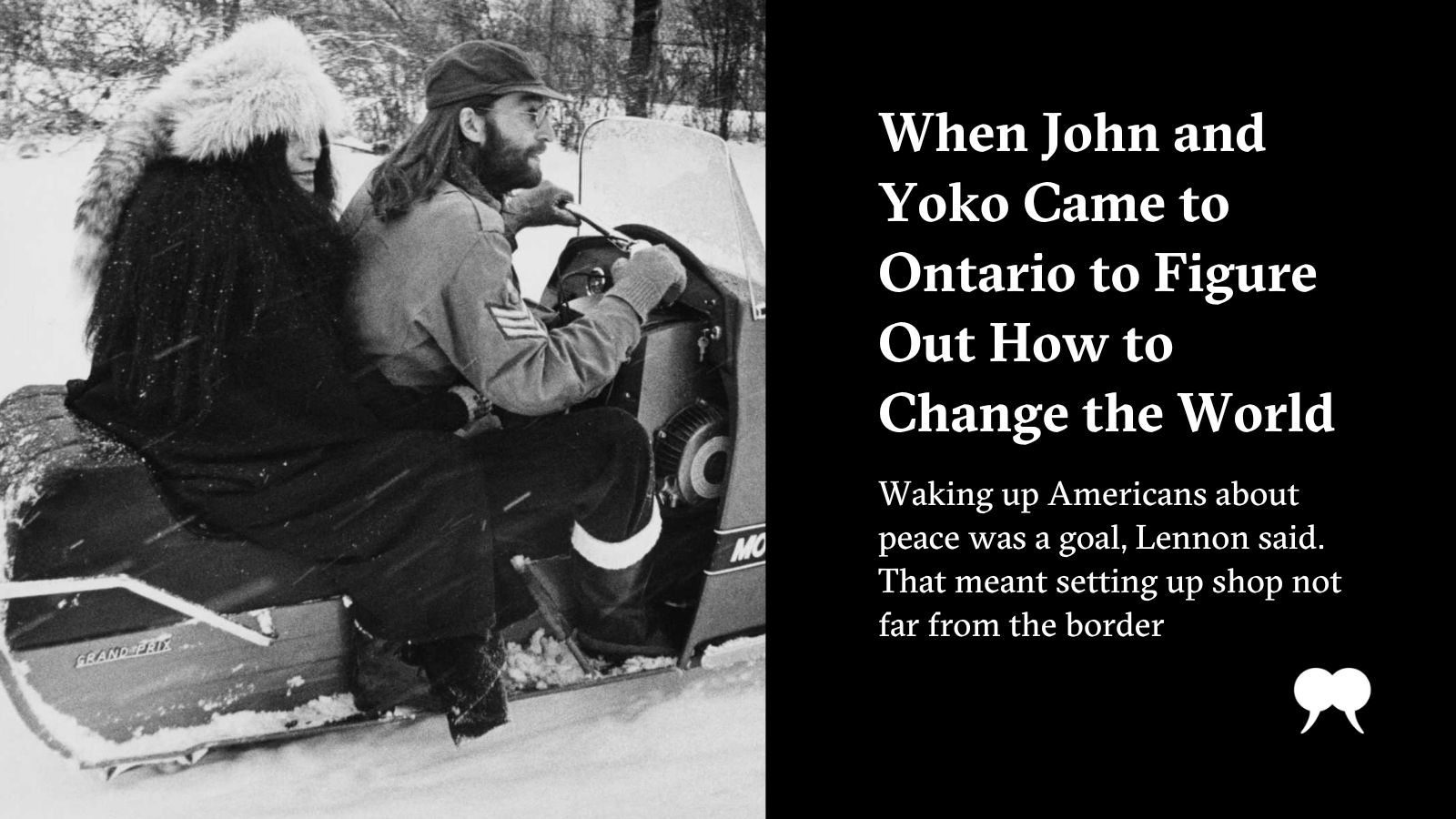
When John and Yoko Came to Ontario to Figure Out How to Change the World
- 23.03.2025 07:02
- thewalrus.ca
- Keywords: Peace Movement, Rock Music Festival
John Lennon and Yoko Ono visited Ontario in 1969 to organize a peace festival near the US border, aiming to promote global peace through media campaigns and public events. Despite skepticism from Canadian media, their efforts highlighted the evolving role of rock music in activism and personality-driven performances.